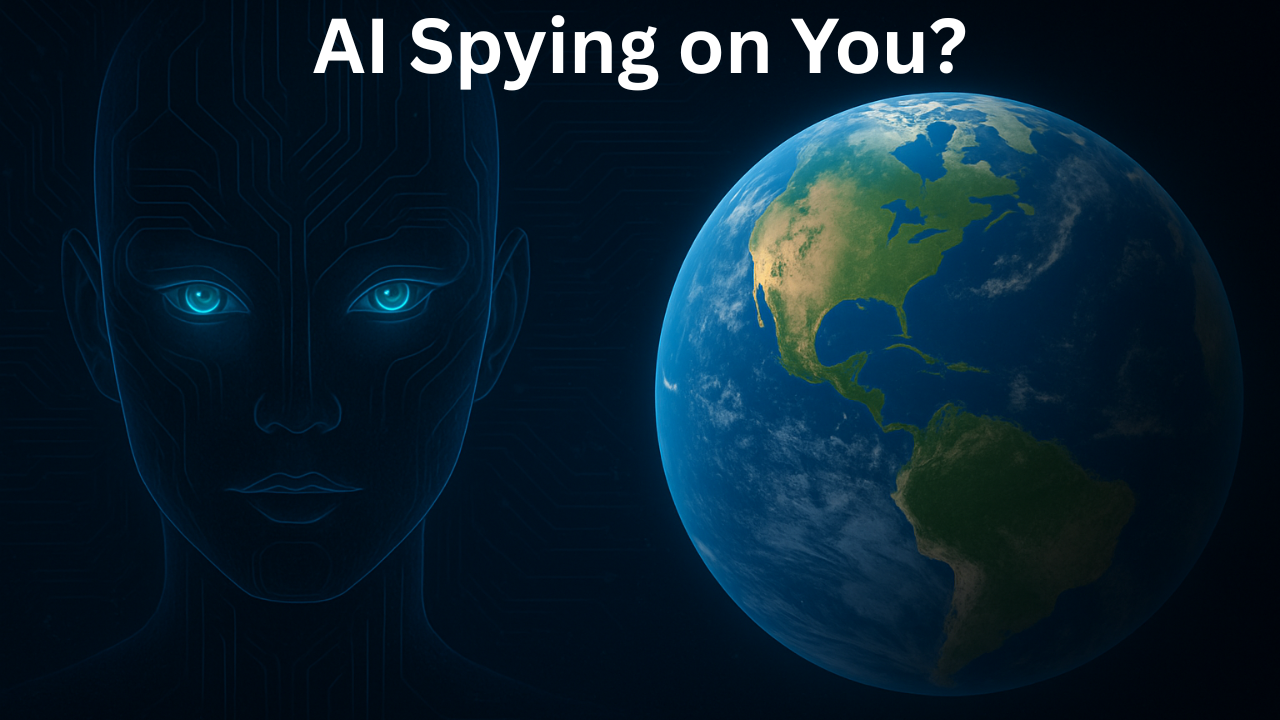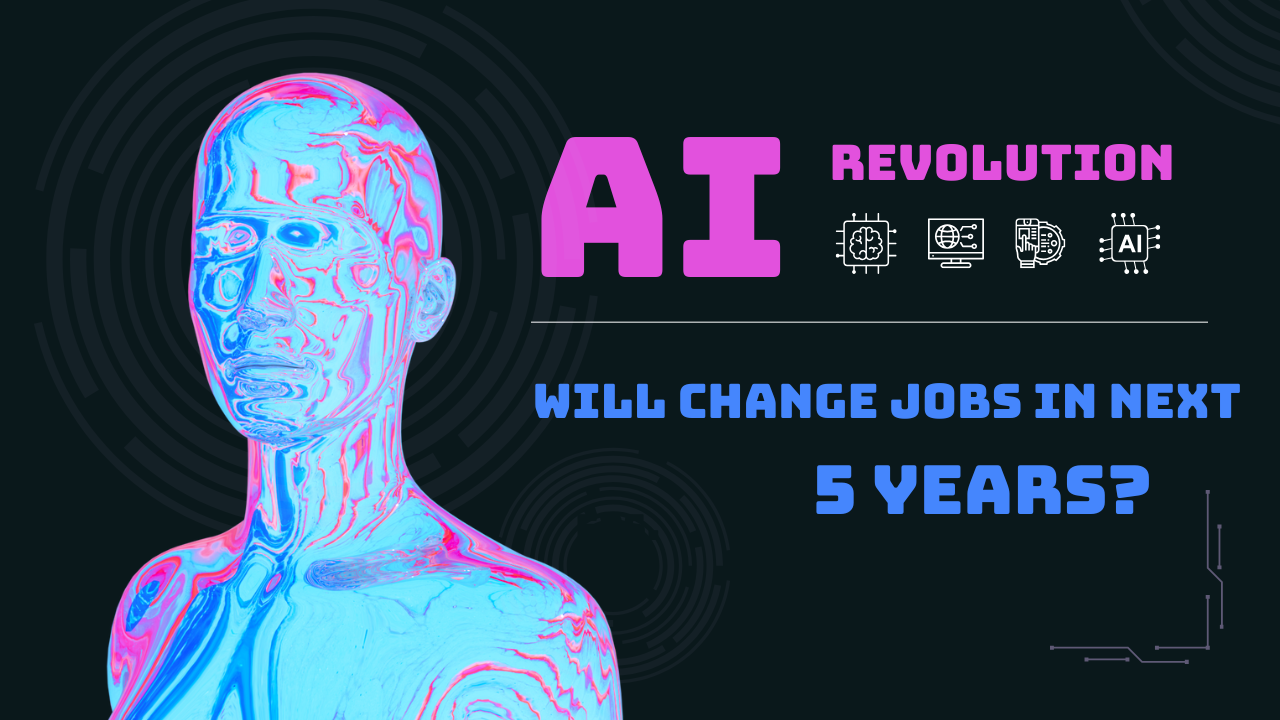Artificial Intelligence (AI) is now a big part of our daily lives. It helps us with everything from unlocking phones with our face, writing emails, suggesting content to watch, and even turning off the lights or you can control whole home by using your voice.
But with all this smart technology around us many people are asking the same question:
“Is AI spying on us?”
Lets break it down in simple terms so you can understand what is really going on and how to protect your privacy.
What Does “Spying” Really Mean in the AI Age?
Before jumping to blog lets first understand what people mean by “AI is spying.” It does not always mean AI is secretly watching you like in spy movies. Usually it refers to:
- Devices constantly listening for input
- Apps you are using use your camera or microphone
- Platforms collecting your behavioral and location data
- AI tools analyzing your actions to predict and influence your next move
Its not about evil robots its about collecting your data.
Your Smart Speaker is Listening You
Devices like Alexa, Google Assistant, and Siri are always listening you to speak word. That means they are “on” all the time waiting for you to say “Hey Siri” or “Alexa.”
But sometimes they mishear things and start recording when they shouldn’t. These short recordings are then saved and sometimes sent to the company for “improvement” of the device.
✅ What You Can Do:
- Mute the mic when you are not using it
- Delete voice history from the app settings
- Check what these devices have recorded about you
Your Camera Is Watching You
Hackers can sometimes secretly access your webcam and microphone without you knowing. This is called camfecting, and it can happen without any warning light turning on.
In addition to hacking some apps ask for permission to use your camera and microphone without explaining why. Many people give permission without reading the whole details and agree the whole document it can they can collect sounds or images without warning.
✅ What You Can Do:
- Use a webcam cover
- Turn off camera/mic permissions for apps you don’t trust
- Review app settings often
The Real Issue Is: Data
Here is the real truth: AI does not “want” your data but companies might do.
Big tech companies collect everything you do online:
- Your location
- What you search
- What you like or scroll (like Facebook,Instagram,Youtube)
- Even how long you look at something
They use AI to analyze this data and learn about your habits, interests, and even mood.
What Can AI Really Do With Your Data
AI systems today can:
- Detect your mood based on your speech tone
- Recommend ads match according to you mood.
- Suggest music, movies, or videos
- Even can guess you mood if you are sad, happy or tired based on your voice.
The Trade: Privacy vs. Personalization
When you use free apps or tools, you often give up some privacy in return for convenience. That’s the trade:
- You get better suggestions and faster help
- But your personal information might be saved or sold
Sometimes you might not even know what you agreed to when clicking “Accept.”
So Is AI Really Spying On You?
Not exactly. AI itself does not spy by itself but the people and companies using AI can collect and use your data.
So yes your smart devices may be listening, watching, or tracking, but only because you gave them permission sometimes without realizing it.
How to Stay Safe and Private
You dont need to stop using AI or smart devices but its very important to use them smartly. Here’s how:
✅ Use private browsers like Brave or DuckDuckGo
✅ Turn off location tracking unless needed
✅ Delete voice recordings and app history often
✅ Only give mic or camera access to apps you really trust
✅ Regularly review your phone or computer’s privacy settings to stay in control with your data
🌟Final Thoughts
AI is powerful and helpful, but its also important to understand how it works. Knowing how your data is used can help you stay in control.
Be aware. Ask questions. And take small steps to protect your digital life.
Because in todays world being smart with technology is just as much important as using it.
📌 For more tech tips, brain tools, and smart living ideas, follow TechSoulHub.
🔹 FAQs Section
1. Is AI really spying on me through my phone or smart devices?
AI itself does not directly spy on you but many smart devices (like phones, speakers, and TVs) are always listening or watching for voice commands. These devices can collect data, which companies may use to improve services.
2. How do I know if my smart speaker is recording me?
Smart speakers like Alexa or Google Assistant are always in standby mode. You can check your voice command history in the device’s app settings to see what has been recorded.
3. Can apps access my camera or microphone without me knowing?
Yes some apps request camera or mic permissions and may use them in the background. Just be careful before giving them permissions and avoid giving access to apps you don’t fully trust.
4. What kind of data does AI collect about me?
AI tools can collect data like your location, browsing habits, search history, voice tone, likes, scroll behavior, and more.
5. Can AI detect my emotions or mood?
Yes, modern AI can analyze your voice tone, facial expressions, and activity to guess your mood (e.g., happy, sad, tired).
✉️ If you have any questions or thoughts, feel free to leave a comment or contact me at rizwanshahid785@gmail.com



Informative
oyb7hc
wbu28k
h39cwv
I am incessantly thought about this, regards for posting.
I got what you mean , thanks for posting.Woh I am happy to find this website through google.
There are some attention-grabbing time limits in this article but I don’t know if I see all of them center to heart. There may be some validity but I will take hold opinion until I look into it further. Good article , thanks and we would like extra! Added to FeedBurner as properly
hi!,I like your writing so much! share we communicate more about your post on AOL? I require a specialist on this area to solve my problem. May be that’s you! Looking forward to see you.
I think you have remarked some very interesting points, regards for the post.
The crux of your writing whilst appearing reasonable originally, did not sit properly with me after some time. Someplace within the paragraphs you actually were able to make me a believer unfortunately just for a short while. I nevertheless have got a problem with your leaps in logic and one might do well to help fill in all those breaks. In the event you actually can accomplish that, I could undoubtedly end up being fascinated.
I’m truly enjoying the design and layout of your blog. It’s a very easy on the eyes which makes it much more pleasant for me to come here and visit more often. Did you hire out a designer to create your theme? Great work!
Lovely blog! I am loving it!! Will be back later to read some more. I am taking your feeds also.
I like this website so much, saved to bookmarks. “I don’t care what is written about me so long as it isn’t true.” by Dorothy Parker.
Well explained
I truly enjoy reading on this internet site, it has wonderful content.
Very informative
Dead indited subject material, Really enjoyed looking at.
Who doesn’t love free spins? betbusfreespins seems to be giving them out. Could be worth checking if you’re into that kinda thing. Good luck!
Hit up plot777slot the other day. Decent slot selection! I spun a few rounds and had some fun. Be careful, keep track of your spending, alright?
Respect to post author, some fantastic selective information.
Sảnh casino tại 188V quy tụ nhiều trò chơi kinh điển như Baccarat, Roulette, Blackjack với dealer chuyên nghiệp, phát trực tiếp chất lượng cao, mang lại cảm giác chân thực như đang chơi tại sòng bạc thật. TONY01-16
I’m now not certain the place you are getting your info, but great topic. I needs to spend a while studying more or figuring out more. Thank you for excellent information I used to be on the lookout for this information for my mission.
Ngoài ra, đơn vị này còn được cấp phép hoạt động từ Curacao eGaming và chịu sự giám sát của PAGCOR – hai tổ chức có quy trình xét duyệt nghiêm ngặt đối với mọi hoạt động giải trí trực tuyến. 188V Giấy phép số 365/JAZ là bằng chứng xác thực cho tính pháp lý của toàn bộ hệ thống mà người chơi có thể kiểm chứng bất cứ lúc nào. TONY01-29O
Its fantastic as your other blog posts : D, regards for posting. “History is a pact between the dead, the living, and the yet unborn.” by Edmund Burke.
Giao diện website của nhà cái chính là điểm cộng lớn đối với các bet thủ lần đầu truy cập. 188v con Trang chủ có sự kết hợp hài hoà giữa 2 tone màu đỏ – đen vô cùng bắt mắt tạo nên vẻ đẹp sang trọng, đẳng cấp. Ngoài ra, các bố cục website cũng được sắp xếp rất logic để người mới dễ dàng thao tác. TONY02-03